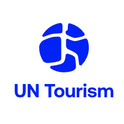Sustainable Tourism through Destinations: Mallorca Hosts 2024 Global INSTO Meeting and III Sustainable Destinations Summit
UN Tourism has brought together its International Network of Sustainable Tourism Observatories to explore actionable policy recommendations that drive sustainable practices across destinations.



Organized by the Fundació Mallorca Turisme (Consell de Mallorca) with the support of UN Tourism, the 2024 meeting of the Network (INSTO) was held alongside the III Sustainable Destinations Summit. Welcoming more than 100 participants, the events featured thought leaders, academics, government officials, and development practitioners to address key issues surrounding the advancement of sustainable tourism worldwide.
Topics discussed included the vital need to enhance governance between national and regional levels, as well as measuring the local impact of tourism through effective data management. Out of these discussions, delegates identified the best ways to forge actionable policies that drive sustainable practices across destinations.
Science-driven transformation
As we are meeting at the backdrop of just adopted new metrics beyond GDP for measuring the Sustainability of Tourism by the UN Statistical Commission, let us collectively mainstream – as INSTO network- this new set of indicators, placing sciences at the heart of tourism transformation. Together, we are accelerating progress towards more responsible, accessible, and sustainable tourism destinations. UN Tourism’s Executive Director, Ms. Zoritsa Urosevic
José Marcial Rodríguez Díaz, Executive Counsellor for Tourism of Consell de Mallorca, highlighted the efforts being made by his Department to promote real coexistence between residents and tourists, encouraging responsible tourism among all visitors and within a framework of sustainable development of tourist activity:
From day one, at the Consell de Mallorca we have been committed to the maximum respect for coexistence; this is our main purpose and mission. For all these reasons, we cannot make the wrong enemy in tourism. We must find the balance between the temporary resident and the permanent resident; between feeling visited and not invaded.
Launched in 2004, the UNWTO International Network of Sustainable Tourism Observatories (INSTO) aims to foster continuous improvement in sustainability and resilience within the tourism sector. Through systematic monitoring of tourism performance, INSTO connects dedicated destinations, enabling the exchange of knowledge and best practices for responsible tourism management.
Today, INSTO numbers 45 members from the Americas, Asia & the Pacific, and Europe, with exciting new additions from observatories in Colombia and Austria.
About UN Tourism
The World Tourism Organization (UN Tourism) is the United Nations agency responsible for the promotion of responsible, sustainable and universally accessible tourism.
As the leading international organization in the field of tourism, UN Tourism promotes tourism as a driver of economic growth, inclusive development and environmental sustainability and offers leadership and support to the sector in advancing knowledge and tourism policies worldwide.
Our Priorities
Mainstreaming tourism in the global agenda: Advocating the value of tourism as a driver of socio-economic growth and development, its inclusion as a priority in national and international policies and the need to create a level playing field for the sector to develop and prosper.
Promoting sustainable tourism development: Supporting sustainable tourism policies and practices: policies which make optimal use of environmental resources, respect the socio-cultural authenticity of host communities and provide socio-economic benefits for all.
Fostering knowledge, education and capacity building: Supporting countries to assess and address their needs in education and training, as well as providing networks for knowledge creation and exchange.
Improving tourism competitiveness: Improving UN Tourism Members' competitiveness through knowledge creation and exchange, human resources development and the promotion of excellence in areas such as policy planning, statistics and market trends, sustainable tourism development, marketing and promotion, product development and risk and crisis management.
Advancing tourism's contribution to poverty reduction and development: Maximizing the contribution of tourism to poverty reduction and achieving the SDGs by making tourism work as a tool for development and promoting the inclusion of tourism in the development agenda.
Building partnerships: Engaging with the private sector, regional and local tourism organizations, academia and research institutions, civil society and the UN system to build a more sustainable, responsible and competitive tourism sector.
Our Structure
Members: An intergovernmental organization, UN Tourism has 160 Member States, 6 Associate Members, 2 Observers and over 500 Affiliate Members.
Organs: The General Assembly is the supreme organ of the Organization. The Executive Council take all measures, in consultation with the Secretary-General, for the implementation of the decisions and recommendations of the General Assembly and reports to the Assembly.
Secretariat: UN Tourism headquarters are based in Madrid, Spain. The Secretariat is led by the Secretary-General and organized into departments covering issues such as sustainability, education, tourism trends and marketing, sustainable development, statistics and the Tourism Satellite Account (TSA), destination management, ethics and risk and crisis management. The Technical Cooperation and Silk Road Department carries out development projects in over 100 countries worldwide, while the Regional Departments for Africa, the Americas, Asia and the Pacific, Europe and the Middle East serve as the link between UN Tourism and its 160 Member States. The Affiliate Members Department represents UN Tourism's 500 plus Affiliate members.
UN Tourism Communications Department
+34 91 567 8100
UN Tourism
